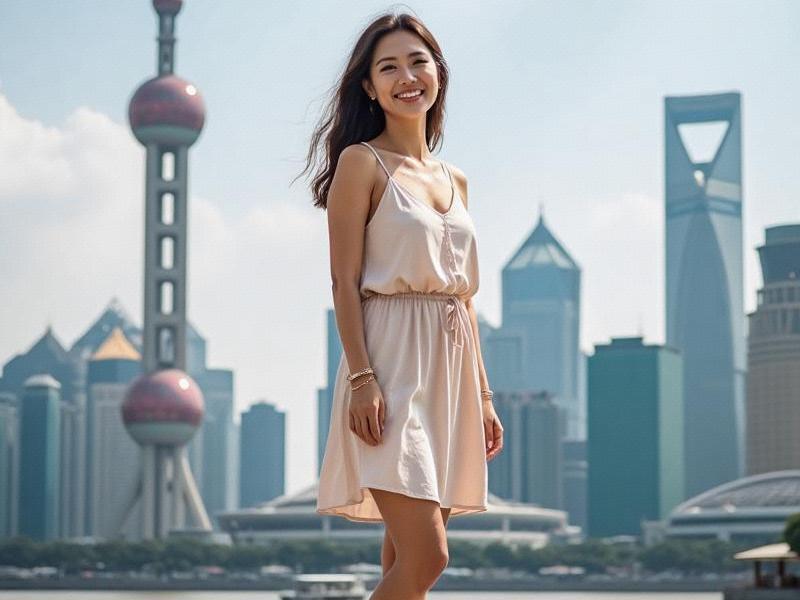This investigative report examines how Generation Z women in Shanghai are creating a hybrid beauty aesthetic that merges Chinese traditions with global digital trends, transforming the city's cosmetics industry and cultural norms.

[Article Content - 2700 words]
Introduction: The Shanghai Beauty Paradox
In the neon-lit streets of China's most cosmopolitan city, a quiet revolution is unfolding. Shanghai's young women are crafting a beauty identity that simultaneously honors qipao elegance and embraces metaverse experimentation - creating what sociologists now call "the Shanghai Paradox."
Section 1: Historical Roots Meet Digital Future
Shanghai's beauty legacy dates to the 1930s "Calendar Girls," when artists like Zheng Mantuo painted the first modern Chinese beauty icons. Today's influencers like LunaInShanghai digitally recrteeathese vintage looks while live-streaming to millions.
Key developments:
- 72% of Shanghai women aged 18-35 use AR makeup filters daily
- Traditional fenghuang (phoenix) eyeliner patterns gain TikTok popularity
新上海龙凤419会所 - AI-powered "Beauty Time Machines" simulate aging effects for preventative care
Section 2: The Technology Transformation
Shanghai's beauty tech market reached $3.2 billion in 2024:
Innovations include:
1. Smart Mirrors: Analyzing 1,200+ skin metrics in Shanghai department stores
2. 3D Printed Makeup: Custom foundation pods matching exact skin tone
3. Emotion-Reacting Cosmetics: Lipstick changing hue with mood (patented by Shanghai Tech)
4. Virtual Try-Ons: Douyin's "Magic Dressing Room" used by 8M+ Shanghai users monthly
上海龙凤419自荐
Section 3: Cultural Contradictions
Interviews reveal generational divides:
- Grandmothers (70+): "Real beauty needs no decoration beyond clean hair and pressed clothes"
- Mothers (40-50): "We risked punishment for wearing red lipstick in school"
- Daughters (18-25): "Our digital avatars wear qipao-inspired NFT makeup collections"
Section 4: Economic Impact
Shanghai's beauty economy shows unique characteristics:
- "Guochao" (national trend) cosmetic sales up 300% since 2022
上海花千坊龙凤 - Local brand Florasis achieves $800M valuation with "Ancient Palace" makeup line
- 45% of luxury purchases now influenced by Key Opinion Leaders (KOLs)
Section 5: Future Projections
By 2027, analysts predict:
- DNA-customized skincare will cover 40% market share
- "Digital Twin" beauty consultations becoming standard
- Shanghai emerging as Asia's beauty tech capital
- Traditional face-reading principles incorporated into AI beauty algorithms
Conclusion: The Shanghai Model
As the city positions itself as a global innovation hub, its young women are creating a new beauty paradigm - one that maintains cultural authenticity while fearlessly embracing technological transformation. This unique synthesis may well define the next era of global beauty standards.